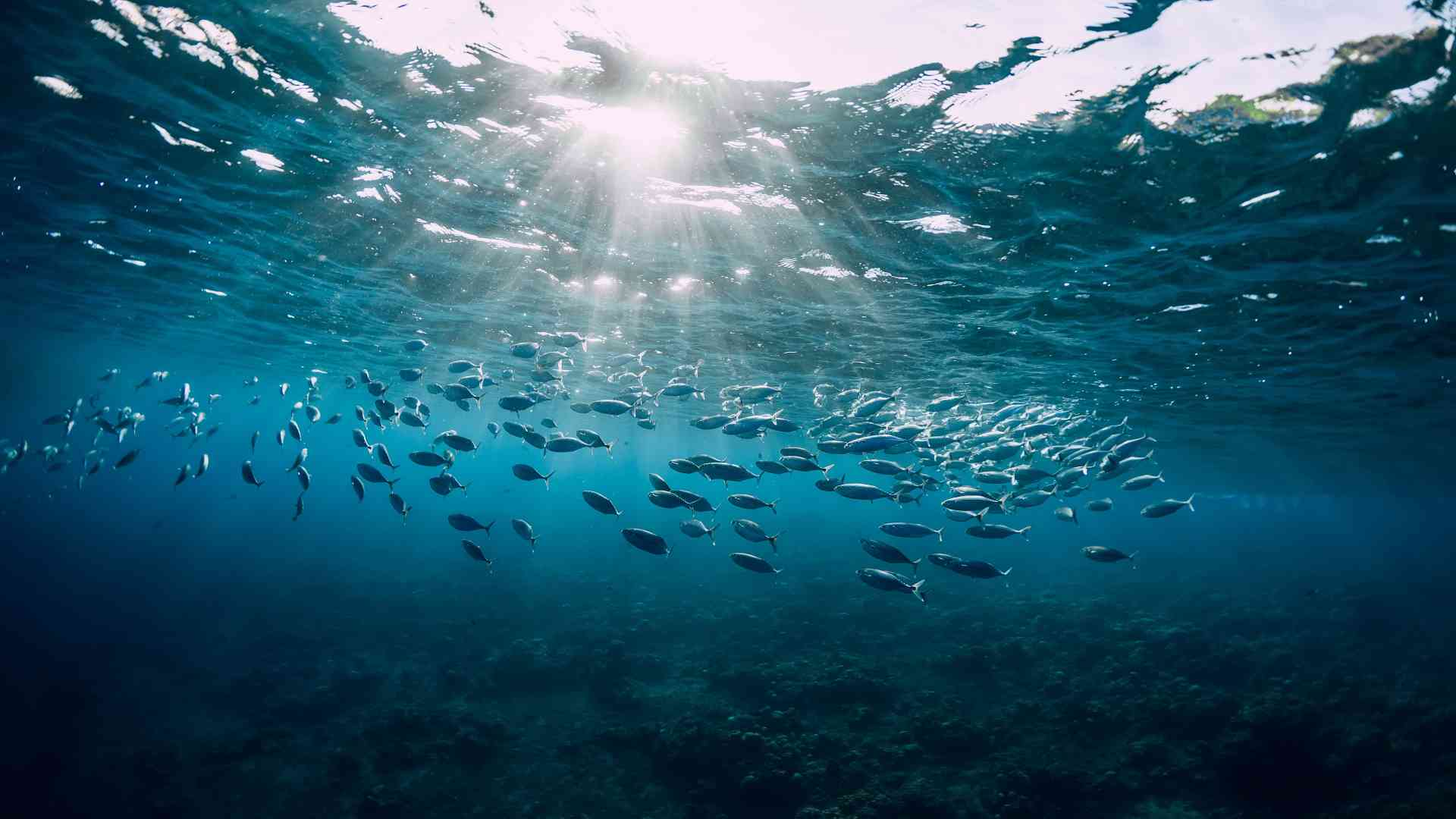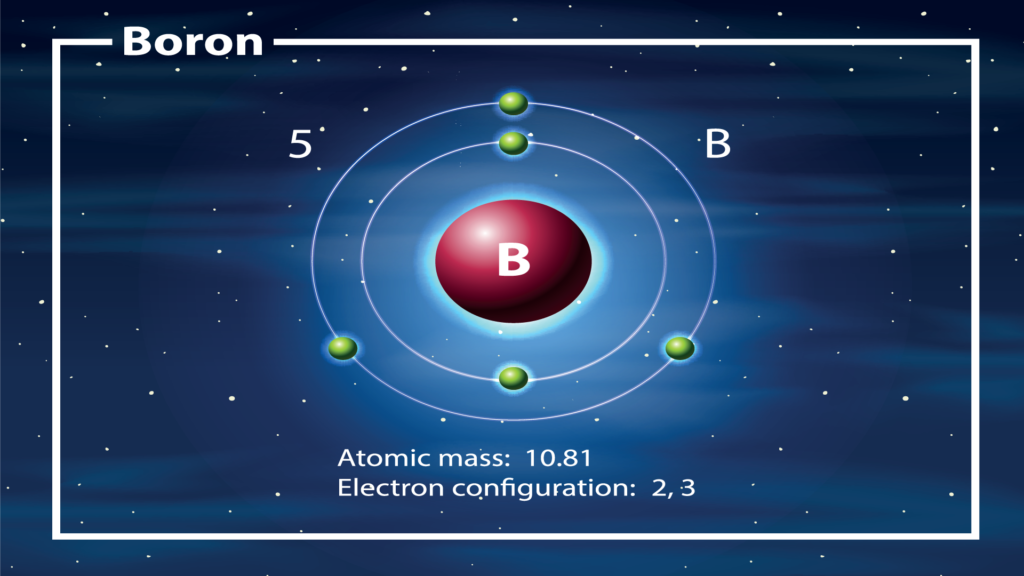The Importance of Boron to Marine Life
Boron is a chemical element that plays a vital role in marine life. This element is found in trace amounts in seawater and is essential for the survival of many marine organisms. The primary sources of boron in the ocean are volcanic eruptions, weathering of rocks, and river runoff.

Marine Life
Boron in the Marine Environment
Boron plays an important role in ocean chemistry and the biogeochemical cycle. It is involved in the formation of marine life sediments, and it helps to control the pH of seawater. Boron is also a key element in the formation of calcium carbonate, which is the main component of marine shells and skeletons.
The distribution of boron in the ocean is not uniform. The highest concentrations of boron are found in the surface waters of the Atlantic and Pacific oceans, while the lowest concentrations are found in the Arctic and Antarctic oceans.
The boron concentration in seawater varies depending on the location, with higher concentrations found in warm waters and lower concentrations found in cold waters.
Biological Importance of Boron
The biological importance of boron in marine life is significant. Boron is essential for the structure of marine life, as it is a key component of the calcium carbonate that forms marine shells and skeletons.
Marine life such as mollusks, crustaceans, and corals use boron to build their shells and skeletons. Without boron, these organisms would not be able to form the hard structures that protect them and provide support.
In marine biochemistry, boron plays an important role as a cofactor for enzymes that are involved in the metabolism of marine organisms. These enzymes are responsible for important biological processes such as energy production, DNA synthesis, and protein synthesis.
Without boron, these enzymes would not function properly, which would negatively impact the growth and survival of marine life.
In marine ecology, boron plays an important role in primary productivity. It is involved in the process of photosynthesis in phytoplankton, which is the base of marine life.
Phytoplankton use boron to build cell walls and transport sugars and other molecules throughout their cells. Without boron, phytoplankton would not be able to survive, which would have a ripple effect on the entire marine life.
Role Boron Plays in Marine Algae
Marine algae have evolved highly effective mechanisms for capturing and transporting boron from their environment. They possess specific transporters and membrane channels that are involved in the absorption of borate into their cells.
These specialized transporters ensure that sufficient amounts of borate enter the cells, allowing them to form strong complexes with sugars on furanoid rings. This ultimately leads to increased rigidity of the cell walls and a higher tolerance for mechanical stress. Marine algae, therefore, rely heavily on the efficient uptake of boron for cell wall maintenance and structural stability.
Overall, boron plays an important role in many aspects of plant physiology, especially in marine algae, where it is essential for cell wall integrity and structural stability. Its efficient uptake and transport are thus key to the survival of these organisms.
Understanding the molecular mechanisms of borate absorption and its cross-linking proteins may provide valuable insights into how other higher plants can be adapted to cope with environmental stressors while maintaining their structural integrity.
Boron Transport and Regulation
Boron uptake in higher plants is dependent on the presence of transporters, and evidence suggests that they are also present in animals. However, further research is needed to identify the molecules responsible for boron transport and their mechanism of action: whether they are mediated by active or passive diffusion and how they interact with boron compounds.
Such knowledge will be valuable to improve animal health through a better understanding of dietary requirements and enhanced therapeutic strategies involving boron-containing compounds. Furthermore, understanding mechanisms underlying boron uptake may provide us insights into other vital processes related to mineral nutrition or drug delivery.
Therefore, more research should be done to elucidate the molecular basis of boron uptake across taxonomic groups such as identifying specific transporters and their mechanism of action to gain a better understanding of boron uptake regulation and its impact on animal health.
Human Activity is Disrupting Marine Life
Human activities have led to an increase in the levels of boron in the ocean, which could have potential ecological and human health risks.
Anthropogenic sources of boron in the ocean include industrial and agricultural activities. The burning of fossil fuels releases boron into the atmosphere, which is then deposited into the ocean through precipitation.
Agriculture also contributes to the boron levels in the ocean, as boron is present in fertilizers and pesticides. These fertilizers and pesticides are used in large quantities and can easily leach into nearby water bodies, such as rivers, lakes, and the ocean.
The impact of human activities on boron levels in the ocean is significant. The increased levels of boron in the ocean due to human activities could potentially have a negative impact on marine organisms and ecosystems.
High levels of boron can interfere with the growth and reproduction of marine life, which could lead to a decline in population numbers. This could also affect the entire marine food web, as marine life at higher trophic levels depends on primary producers for food.
The potential environmental risks associated with pollution are not yet fully understood. However, it is believed that high levels of boron in the ocean could potentially have a negative impact on marine organisms and ecosystems. This could lead to a decline in population numbers, which would have a ripple effect on the entire marine life.
Further Research on Marine Life
Scientists have long been intrigued by the mysterious role of boron in marine life, and are beginning to unlock some of its secrets. It is known that boron is an essential element for ocean algae and is thought to be involved in the reproductive processes of corals.
As researchers increasingly search for more uses for this micronutrient, they open up possibilities for greater knowledge about how it affects our enormous oceans – knowledge which could bring immense environmental benefits.
With an understanding of how boron affects marine life, we may even discover ways to rejuvenate and preserve these precious ecosystems, unleashing further potential with regard to the health of our planet’s oceans.



